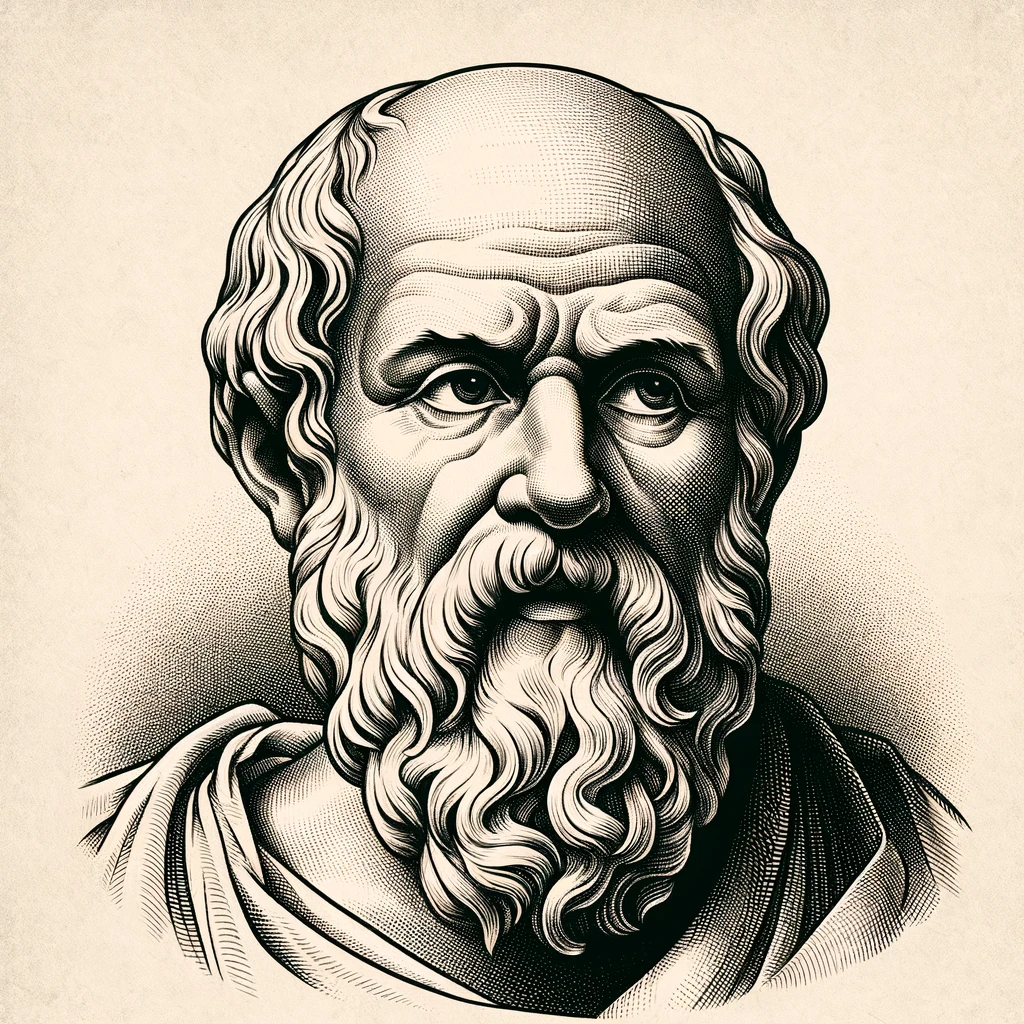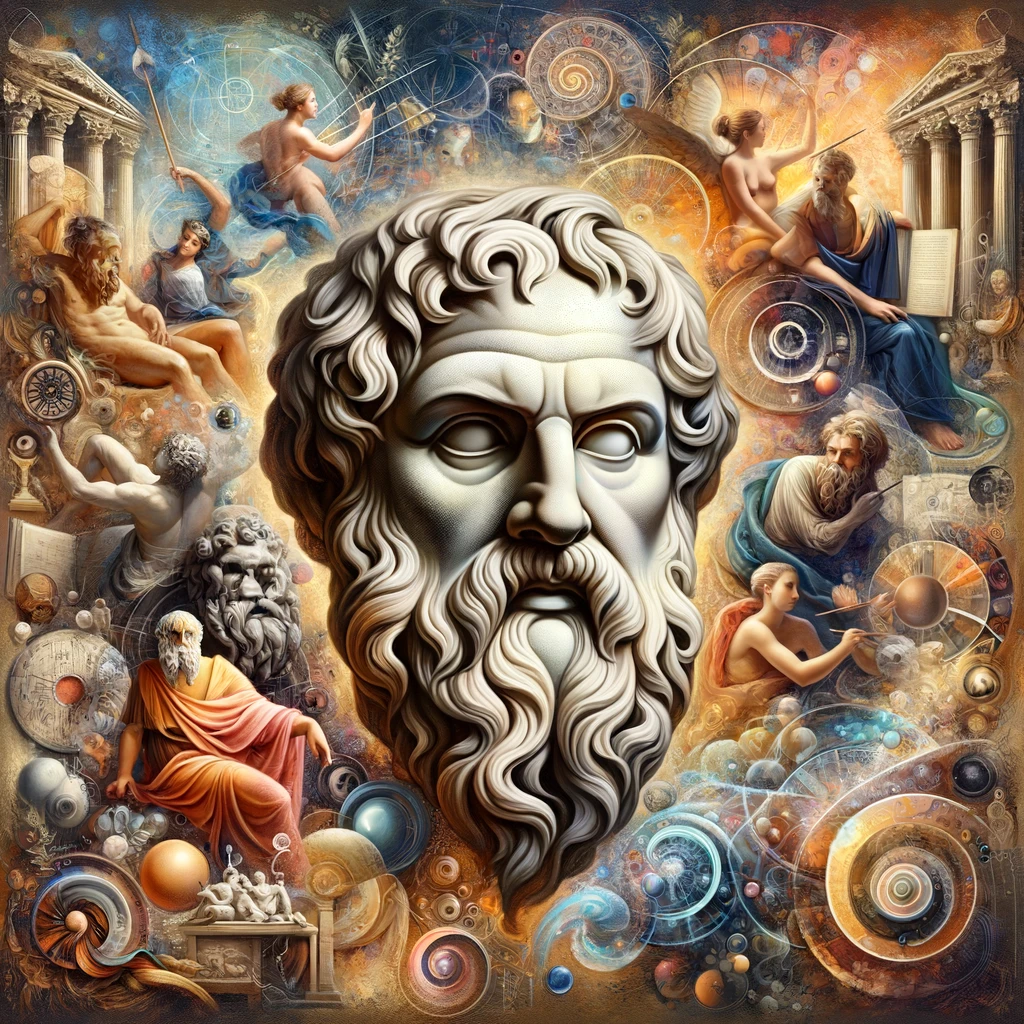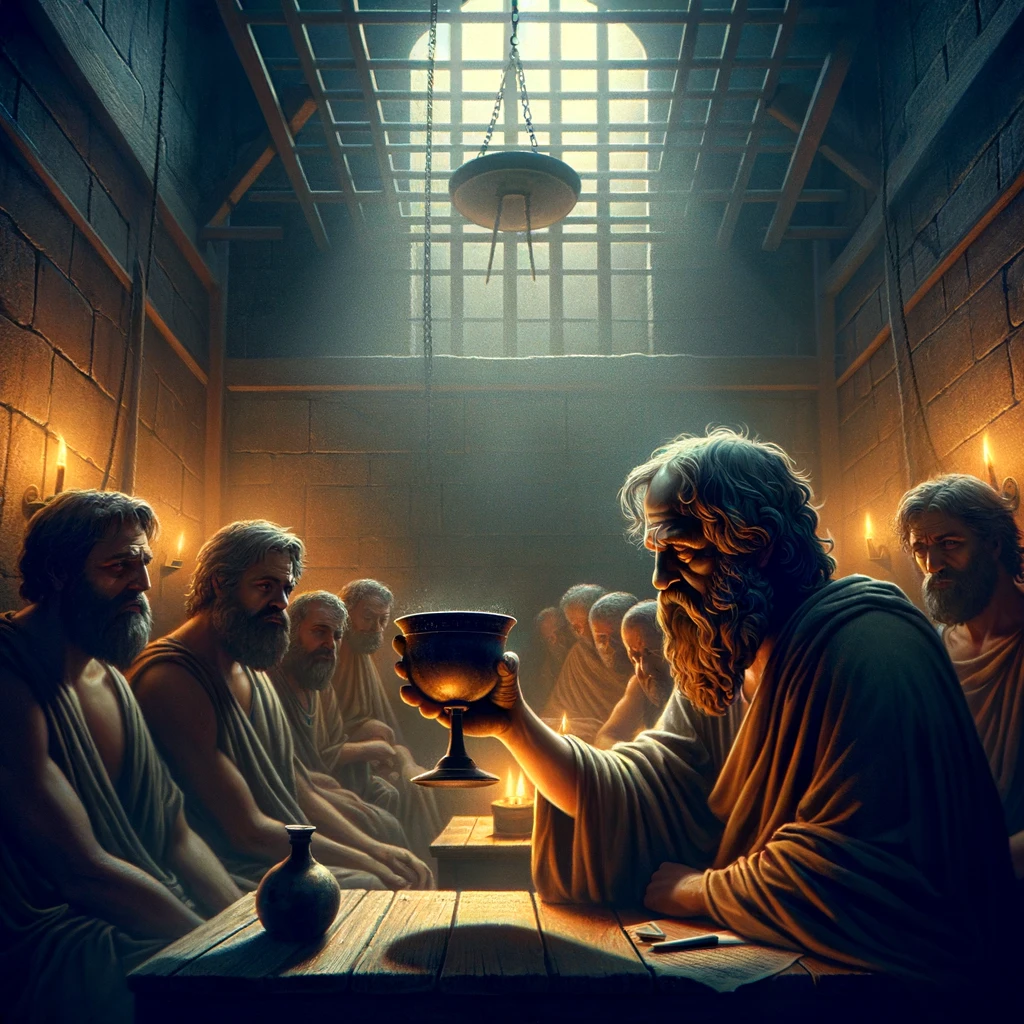The trial and subsequent death of Socrates remain one of the most poignant moments in the annals of history, symbolizing the eternal conflict between the pursuit of truth and the powers of societal conformity. Socrates, the gadfly of Athens, met his fate with a calmness that has echoed through millennia, teaching lessons of integrity, courage, and the importance of living a life of examined virtue. This blog post navigates through Socrates’ trial, his impassioned defense, and his stoic acceptance of the hemlock cup.
The Trial of Socrates:
In 399 BC, at the age of 70, Socrates stood before his Athenian accusers in a trial that would culminate in one of the most infamous sentences in the history of philosophy. Charged with corrupting the youth and impiety towards the gods of Athens, Socrates faced not just the wrath of a court of 500 jurors but also the broader societal tensions of a city recovering from the Peloponnesian War and political upheaval.
Socrates’ Defense:
Plato’s “Apology” offers the most comprehensive account of Socrates’ defense, where he eloquently, yet unsuccessfully, sought to refute the accusations against him. Socrates argued that his philosophical inquiries were not a corruption of the youth but a moral obligation to seek truth and wisdom. He proposed that his questioning was a divine mission bestowed upon him, serving Athens by challenging complacency and encouraging a deeper engagement with virtue.
The Sentencing and the Hemlock Cup:
Despite Socrates’ compelling defense, the jury was not swayed. By a narrow margin, they found him guilty, leading to his sentencing. When asked to propose his penalty, Socrates’ refusal to relent or flee Athens, and his suggestion that he be rewarded rather than punished, only sealed his fate. Sentenced to death by drinking a cup of hemlock poison, Socrates faced his end with remarkable tranquility, surrounded by his distraught followers.
The Hemlock Cup not only signifies the end of Socrates’ life but also marks the beginning of his eternal legacy. Socrates’ trial, defense, and serene acceptance of death underscore the profound courage required to live a life of philosophical inquiry. His final stand against the Athenian state reaffirms the value of questioning societal norms and the importance of integrity over conformity. Socrates’ life and death continue to inspire a commitment to intellectual and moral rigor in the face of adversity.









